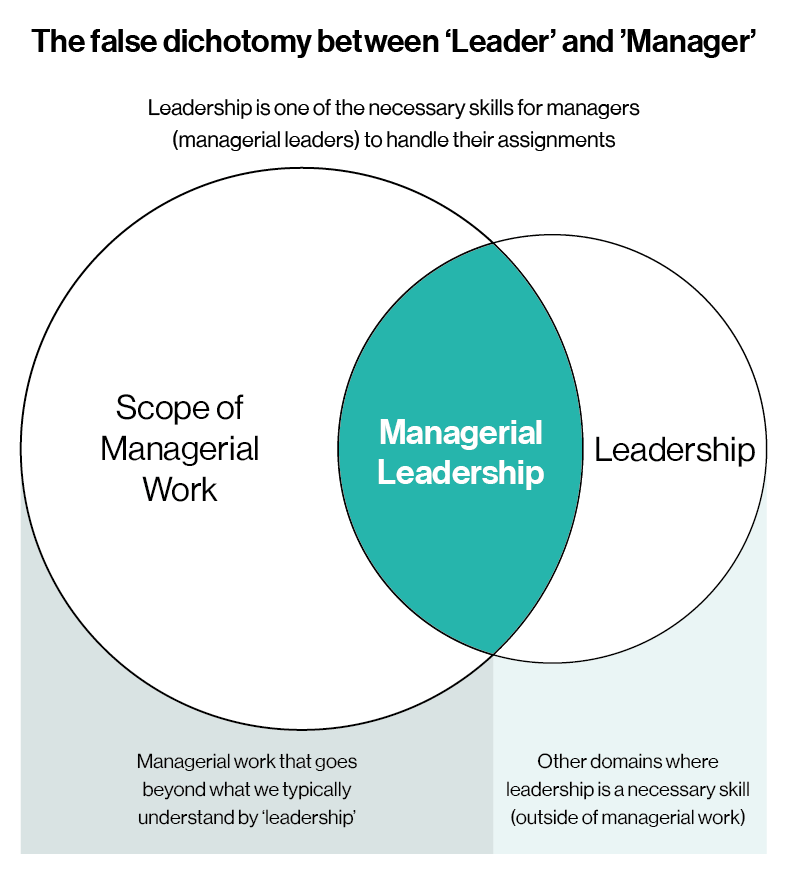Are Managerial Development and Leadership Development Programmes the same thing?
Rafael Beran Bruno
Managing Director
Instituto Pieron (Bioss Brazil)
The difference between Managerial Development and Leadership Development Programmes is not just semantics. When designing managerial development programmes one should keep in mind that “Manager” is a role and “leadership” is a skill. Furthermore, leadership is not the same at different levels of work.
Firstly, let us consider what a MANAGER is: someone who, by filling a certain role, is accountable not only for their own work and effectiveness, but also for the work and effectiveness of their subordinates.
This, of course, involves building, sustaining, and leading a team that is capable of delivering what is required, moving in the right direction and continuously improving.
And what about LEADERSHIP?
In the business context, leadership is one of the skills necessary for managers to be able to handle their assignments.
If a manager is accountable for the work and effectiveness of their team, then they must be able to influence their subordinates to work in the desired direction.
Note the emphasis on “influence”, the most desirable form of leadership. Getting people to move in a certain direction, not because of the managers’ vested authority, but because they believe and want to go in that direction.
It should be clear that having good leadership skills is not only a requirement for managers. These skills are also crucial in other domains of life that have nothing to do with business.
For example, leadership is important for the football team captain, for the teacher, for the candidate competing for a seat at parliament, for the member of the fire brigade and so on. Yes, different types of leadership, but they all share influence as a common factor.
Even in the business context, leadership is not the same at different levels of work. Leadership at line management level is not the same at a CEO level. If they try to influence their teams in the same way, they will fail miserably.
In summary, manager is a role and leadership is a skill (a form of influence) that is essential for those who have managerial accountability. It’s that simple.
Therefore, anyone who understands these concepts knows that the false dichotomy between leader and manager (often seen in social networks) makes no sense.
There are things that the trusted old Venn Diagram helps us to see more clearly:

“Leader” in itself is neither a role nor a quality, as you may have good leadership skills in one context, but not in another.
Children often show flashes of wisdom in what they say. Have your children ever told you that they want to be a leader when they grow up? Of course not. Kids want to be police officers, firefighters, presidents, musicians, astronauts and so on. Some of these roles may require leadership skills to be successfully fulfilled.
And what are the implications of all of this for managerial development programmes?
The bottom line is this: the role of the manager requires more than influencing skills. Being a manager is more than leadership and goes beyond soft skills. Self-awareness, clear communication, empathy, negotiation skills, etc. are undoubtedly important qualities to be acquired, but they cannot be the only aspects for effective managerial development.
Being a competent manager also involves hard skills and knowledge, which have a direct impact on a company’s culture and effectiveness.
To end this blog, I will share some of our experience with the subject. When we design managerial development programmes for our clients, we always keep a few points in mind:
- Managerial leaders need a management model that is supported and reinforced by the C-Level. There is no point bringing in external content that is interesting, inspiring, and piques curiosity, but is not reinforced from the top down.
- This management model must be built on principles of meritocracy and accountability. That’s what works, especially if the enterprise operates in a competitive market. If the enterprise lacks a solid management model, one must be built.
- There is a lot of talk about accountability, but there is little clarity about the flip side of the coin: authority. Especially when dealing with lateral authorities (between areas/departments). This is what causes the culture of silos, which the “new” management models try to solve.
- Managers need to understand not just behaviours, but systems and symbols as well. People take breaks, go on vacation, and return to their homes. Systems and symbols, on the other hand, keep working 24/7.
- Managers often have not been exposed to basic concepts of organisational design, one of the most important systems in play. This has become progressively worse in recent years.
- There are certain management principles and processes that are timeless and tested in different industries, markets, and geographies. Paradoxically, they are often overlooked. Therein lies the basis of solid management models.
- Managerial leaders need a clear understanding of human capability. Without that, they cannot be effective as coaches (a responsibility that cannot be delegated). With no clear understanding of human capability, they will confuse potential with other qualities such as skills, values, personality, and competence.
- Everyone knows that actions outside the “classroom” are crucial, but they should not be seen as mere “actions”. It is necessary to create systems, processes, habits, and accountability to drive change and improvements.
- And, of course, soft skills such as influence, leadership, communication, etc. are important elements that must always be present. The problem is believing that these themes need to be at the core of managerial development programs. We know that these programmes should go much deeper than that.
© 2022 BIOSS ™. All Rights Reserved.
The original version of this post can be found here.
